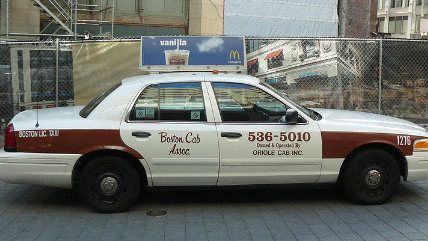Reforming Boston's Corrupt Taxi Cartel

Boston, like many cities, arbitrarily limits the number of taxicabs on the streets via a medallion system. Lest the resulting lack of competition tempt cab companies to overcharge passengers, the city also imposes rigid price controls. This system has its drawbacks.
According to Harvard economist Edward Glaeser, writing in the Boston Globe:
The purpose of taxi regulation is simply to protect passengers against being fleeced by unscrupulous cabbies, and to keep passengers, bystanders, and the environment safe. Yet the system instead has evolved mainly to enrich the holders of government-issued taxi medallions, even as taxi drivers struggle to earn a living and passengers pay some of the highest rates in the country.
The Globe reports after a months-long investigation of the industry that one fleet owner, who controls a fifth of the city's medallions, routinely cheats cab drivers and skirts accident-insurance requirements. Last week, long-time Boston Mayor Thomas Menino called for a review of the city's policies and floated the idea of creating a civilian review board to mediate disputes between cabbies and medallion owners.
Glaeser proposes market-based reforms: replacing the medallion system with an annual fee for whoever wants to drive a cab and allowing cabbies to compete on price.
Back to the Globe:
Better regulation would base the fees on a hard estimate of the burden each cab imposes on its surroundings. Just like other cars, cabs create congestion, pollution, and safety risks for pedestrians and other drivers; these and other problems associated with driving amount to a social cost of 10 cents per mile, by one estimate. So if Boston cabs travel an average of 60,000 miles per year, the annual … fee should be about $6,000.
Cab companies should be allowed to post and advertise lower rates—and then use electronic cab services, like Uber, to help customers find cheaper cabs.
Currently, officials have determined that "public convenience and necessity" dictates that there should be only 1,825 cab medallions in Boston, though there are 6,000 licensed cab drivers jostling for the opportunity to rent a car for 12 and 24-hour shifts. According to the Globe, those medallions can fetch $600,000.
In case you're wondering, yes, established taxi businesses are obstructing Uber in Boston too. Reason has covered Uber's regulatory travails in Denver, Chicago, and San Francisco.


Show Comments (62)